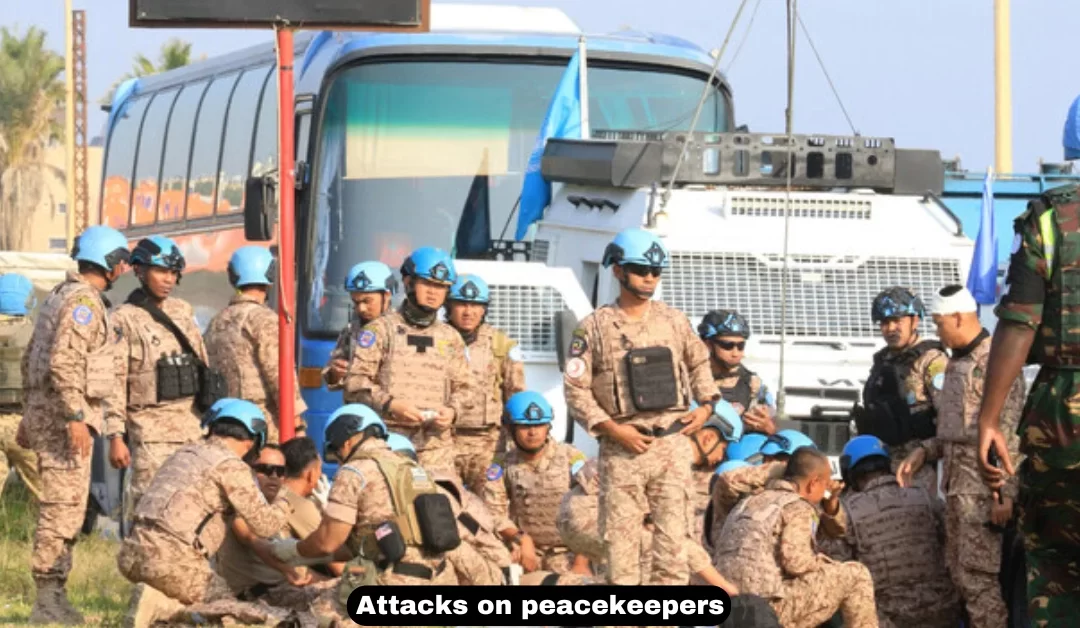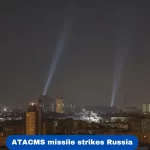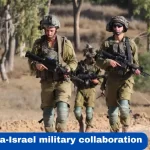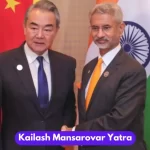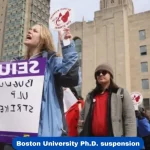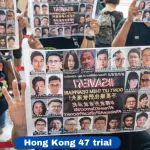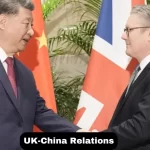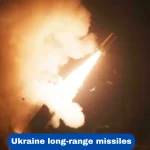The UN Security Council has expressed strong disapproval over recent attacks on UN peacekeeping forces in southern Lebanon. These incidents have led to injuries among several peacekeeping troops. The UN Interim Force in Lebanon (UNIFIL) continues to carry out its mission of monitoring hostilities in the region, specifically along the border area known as the Blue Line, which separates Lebanon from Israel. Over the past year, this border has witnessed repeated skirmishes between Israeli forces and Hezbollah fighters, with the situation escalating into significant clashes in recent weeks.
Background on UNIFIL’s Role and Tensions in Southern Lebanon
UNIFIL was established to ensure peace and monitor activities in southern Lebanon, especially in the area along the Blue Line. The force plays an essential role in maintaining stability and reporting any violations. The UN created the Blue Line in June 2000 to confirm Israel’s withdrawal from Lebanon. Over the years, UNIFIL has worked to prevent conflicts from erupting into full-scale war.
However, the situation has become more complicated due to increased hostilities. Israel has accused UNIFIL of providing cover for Hezbollah, the powerful militant group based in Lebanon. In response, Israel has urged the peacekeeping force to withdraw its troops, citing concerns for their safety. Despite these calls, UNIFIL has refused to leave. Instead, it has committed to its mission, insisting that it will continue monitoring and maintaining peace along the border.
UNIFIL’s Challenges and Israel’s Accusations
The current environment is tense. Israeli military officials have accused UNIFIL of not being neutral, alleging that their presence may indirectly aid Hezbollah. This accusation has led to further strain between the two sides. Meanwhile, UNIFIL has condemned acts by the Israeli army, such as the destruction of their property, stating that these are clear violations of international law and UN resolutions.
UNIFIL has emphasized that their mission is to operate impartially and uphold peace. The force has issued warnings, pointing out that deliberate destruction of their clearly marked facilities and equipment by Israeli forces is unacceptable. The Security Council echoed this concern, highlighting that peacekeeping personnel and facilities should be protected and respected.
The UN Security Council’s Call for Safety and Stability
On Wednesday, the UN Security Council, which includes 15 member states, issued a collective statement urging all parties in the conflict to ensure the safety of UNIFIL troops. The Council stated that peacekeepers should never be targets of violence and emphasized the need for all sides to take appropriate measures to safeguard UN personnel. This declaration underscores the Council’s commitment to supporting UNIFIL’s mission and recognizing its critical role in promoting stability in the region.
The Council members reiterated their support for UNIFIL and expressed their deep gratitude to the countries contributing troops to the peacekeeping force. These countries play an important role in maintaining peace and security in a highly sensitive region. Furthermore, the UN Security Council called for respect toward UN peacekeepers, asserting that attacking them undermines efforts to maintain peace.
Concerns Over Civilian Casualties and Infrastructure Damage
Beyond addressing the safety of UN peacekeepers, the Security Council also expressed serious concern about the impact of ongoing violence on civilians in Lebanon. They noted that the conflict has led to a significant number of civilian casualties, damage to civilian infrastructure, and threats to important cultural heritage sites, including UNESCO World Heritage Sites in Baalbek and Tyre. The Council called on all involved parties to comply with international humanitarian law, which protects civilians during conflicts.
Additionally, the increasing number of internally displaced people in Lebanon has become a growing humanitarian issue. The violence has forced many residents to leave their homes, putting more pressure on local communities and aid organizations.
The UN Security Council urged all involved parties to work toward peaceful solutions and fully implement relevant Security Council resolutions. This step is critical to reducing violence and preventing further harm to both peacekeepers and civilians.
The statement also brings attention to the wider impact of the conflict, emphasizing the need for adherence to international humanitarian laws to protect civilians and preserve cultural sites. The situation remains volatile, and ongoing efforts by UNIFIL and international bodies are crucial to maintaining peace and preventing further violence.

